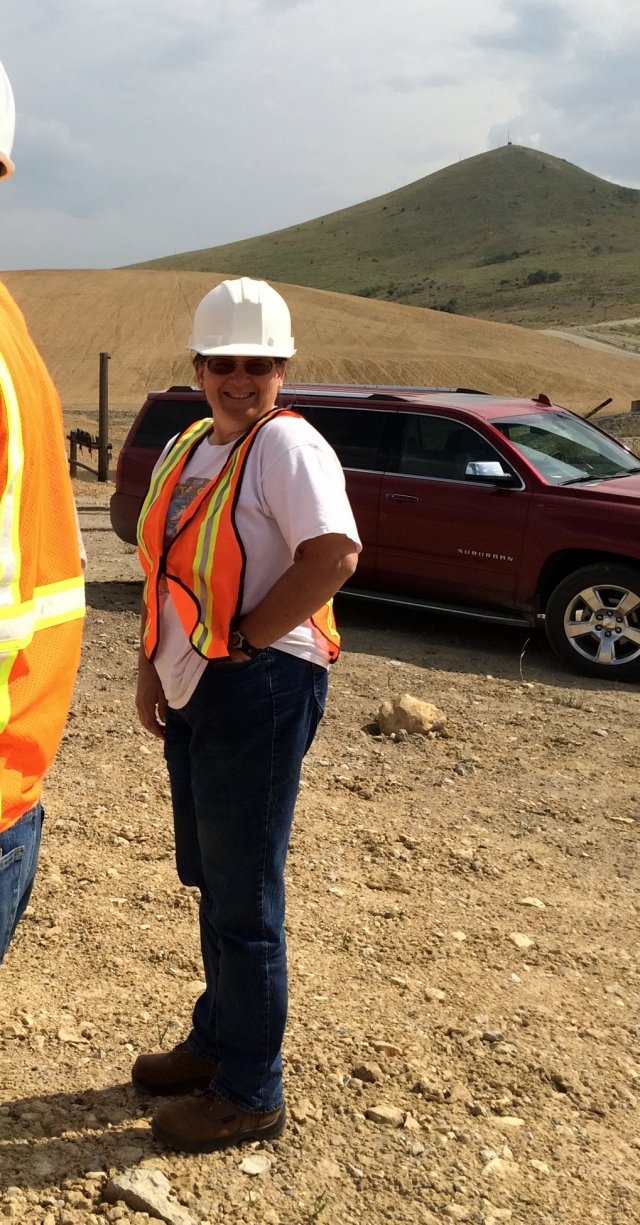Meet EPA Environmental Engineer Barbara Butler Ph.D.
Barbara Butler works in EPA research areas involving emergency response, land remediation and more. With a background in chemistry and environmental science and engineering, she uses her expertise and experience to provide research and support to program and regional offices on treatment, remediation, and mitigation of environmental contamination issues at abandoned and proposed mining sites.

How does your science matter?
Mining metals is necessary to provide materials needed in many of the items associated with everyday life, including the buildings we live and work in, our means of transportation (outside of simply walking), and our means of communication. As an example, there are small amounts of many metals in smartphones, such as copper, gold, silver, palladium, lithium, aluminum, yttrium, lanthanum, neodymium, among others. While some recycling of cell phones and recovery of elements does occur in the world, many of these materials and the phones end up in landfills, as do other electronics and consumer items containing metals. Until recovery of these elements becomes prevalent on a large scale, mining of raw materials will be necessary, but it comes with risks to human and environmental health that need to be mitigated. My research contributes to mitigating these risks and remediating those that exist from historical mining.
If you could have dinner with any scientist past or present, who would it be and what would you like to ask them about?
I would pick the German scholar Georg Bauer, also known as Georgius Agricola (1494-1555). He wore many hats, having been a physician, a mineralogist, a metallurgist, a mayor, a diplomat, and a writer of history. He authored two of the earliest scientific texts in approaches to mineralogy, mining, and geological science: De Re Metallica and De Natura Fossilium. In De Re Metallica, he noted that critics of mining would argue that it destroyed fish or drove them away and injured their fields and vineyards. We see those same problems today from abandoned historical mines in the U.S. and around the world. Interestingly, evidence exists still today of increased metal concentrations in soils adjacent to mining wastes in Southern Jordan from mining that occurred more than 2000 years ago.
I would ask him what the prevailing thoughts were during his lifetime regarding balancing the need for metals and protecting the environment, and whether attempts had been made (and what those were) to mitigate against environmental and human health harms from mine drainage and mining wastes. In today’s world, we often speak of the need to treat mining-influenced water for hundreds of years, or in perpetuity. Was that need recognized in the 1500s? Did they observe issues from ancient mining?
What do you like most about your research?
I like the diversity in tasks associated with data analysis from different media types, assisting colleagues in field work, and working with groups of people from different disciplines to address and solve complex issues and problems. I especially appreciate that even when folks don’t agree or issues are contentious, team members show respect for each other while working toward solutions.
When did you first know you wanted to pursue science?
I didn’t have an “ah-ha!” moment that marked when I first knew I wanted to pursue science. I grew up on a small family farm in rural southern New Jersey and was immersed in the environment daily. I gained an interest in geology when I was about 8 years old and found a fossil while hoeing in the field. A professor many years later dated it as from the Mesozoic period, but then unfortunately (for me) lost it in his office! The story of exactly how I got to the career I have here at EPA was via a winding road and is an interesting long story that will not fit into this space.
Tell us about your science/educational background.
I have a BS in chemistry from the University of Colorado, at Colorado Springs, and an MS and PhD in environmental science and engineering from the Colorado School of Mines, with minors in project management and geochemistry.
Any advice for students considering a science career?
Never lose your inquisitiveness. Seek out teachers, other students, and those in your community to serve as mentors. Science is a broad arena – seek a field that interests you most and your future career will never feel like work. Look for opportunities such as internships and work-study programs to practice and hone your science skills as you travel through your academic time. Learn and develop the skill of critical thinking to enable you to remain objective when conducting research and evaluating research of others.
Editor's Note: The opinions expressed herein are those of the researcher alone. EPA does not endorse the opinions or positions expressed.
